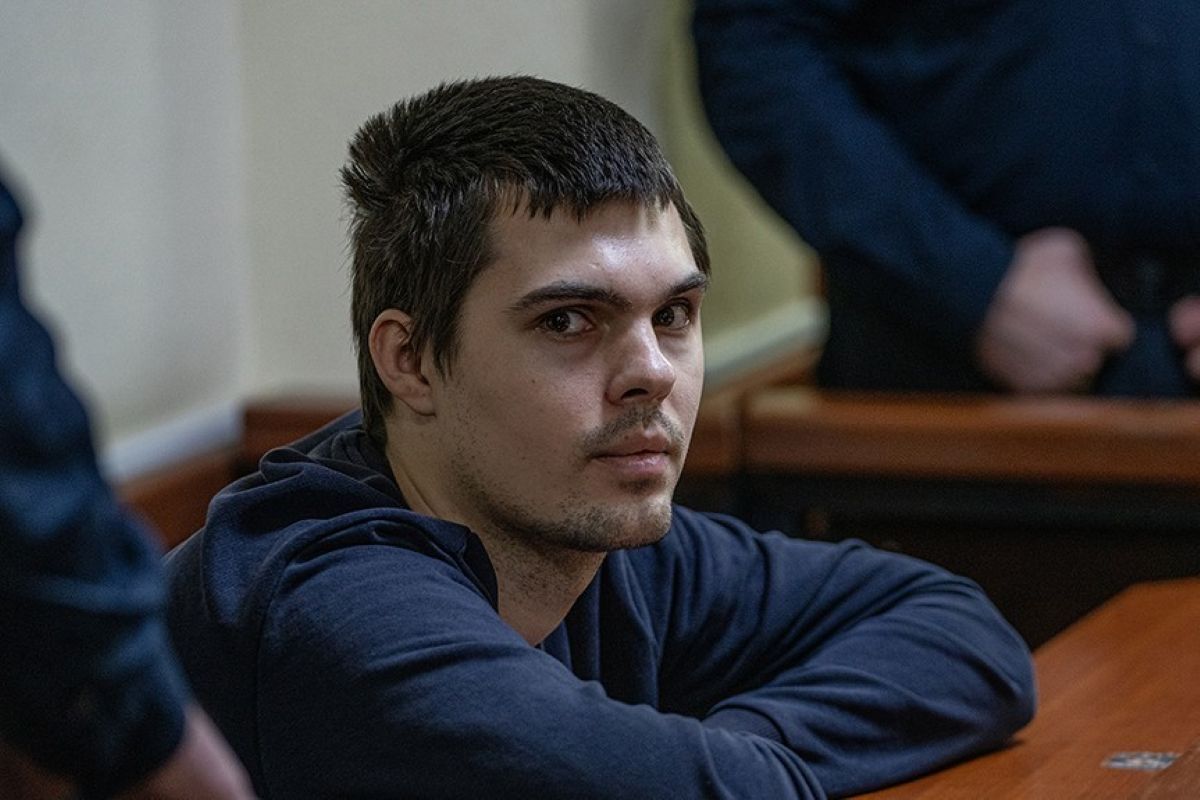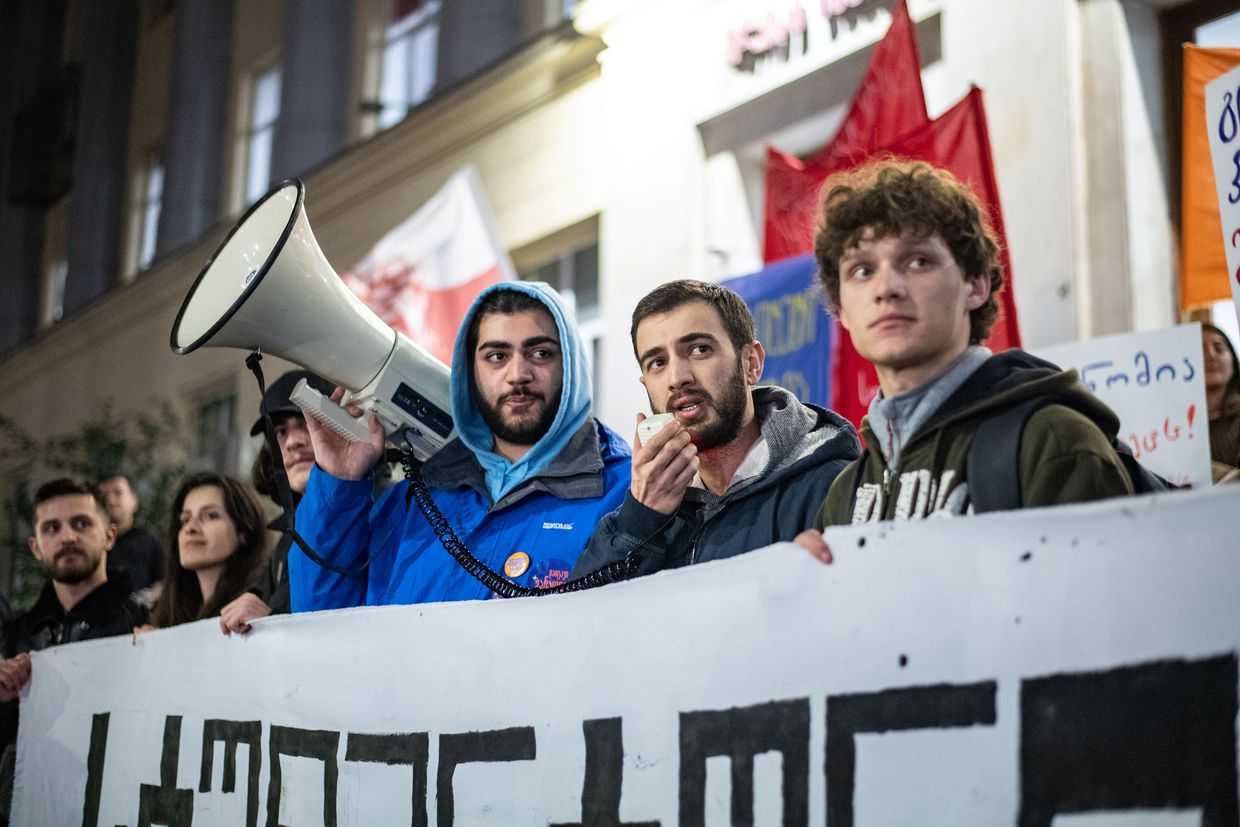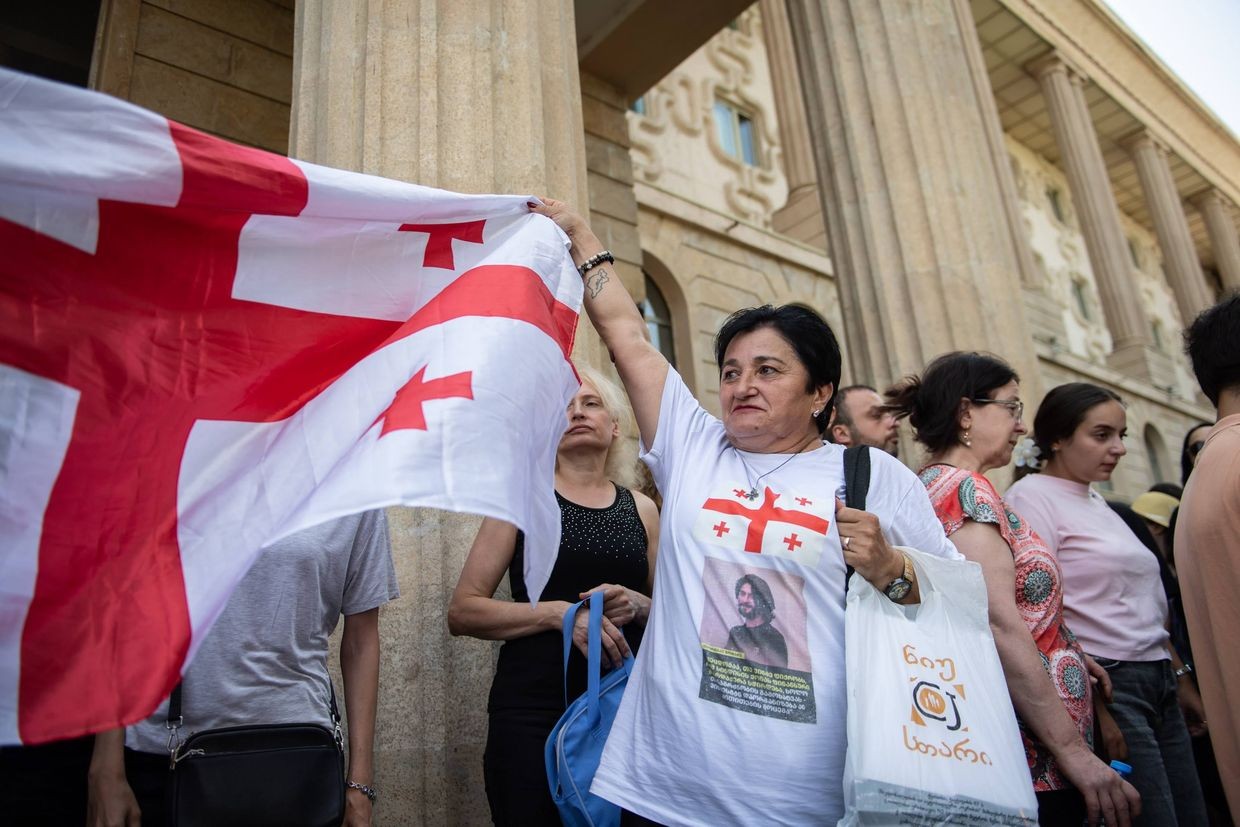
Tbilisi City Court has announced verdicts for eight people detained under violence-related charges during Georgia’s ongoing anti-government protests. Their charges were eventually reclassified, resulting in prison terms of two to two-and-a-half years.
Judge Tamar Mchedlishvili announced the verdicts on Tuesday. All eight defendants’ cases had been consolidated into a single trial, so their hearings were held together over the past months.
The investigation accused three of the detainees — 20-year-old Zviad Tsetskhladze, 51-year-old Vasil Kadzelashvili, and 53-year-old Vepkhia Kasradze — of organising group violence, which carries a sentence of up to nine years in prison.
The remaining detainees — 19-year-old Nikoloz Javakhishvili, 20-year-olds Giorgi Gorgadze and Irakli Miminoshvili, 25-year-old Tornike Goshadze, and 34-year-old Insaf Aliyev — were charged with participating in group violence, which is punishable by up to six years in prison.
Ultimately, Judge Mchedlishvili reclassified the cases under a different charge, involving the organisation of group actions that violate public order or active participation in such actions.
As a result, Tsetskhladze, Kadzelashvili, and Kasradze were sentenced to two and a half years, while Miminoshvili, Goshadze, Gorgadze, Javakhishvili, and Aliev received two-year sentences.
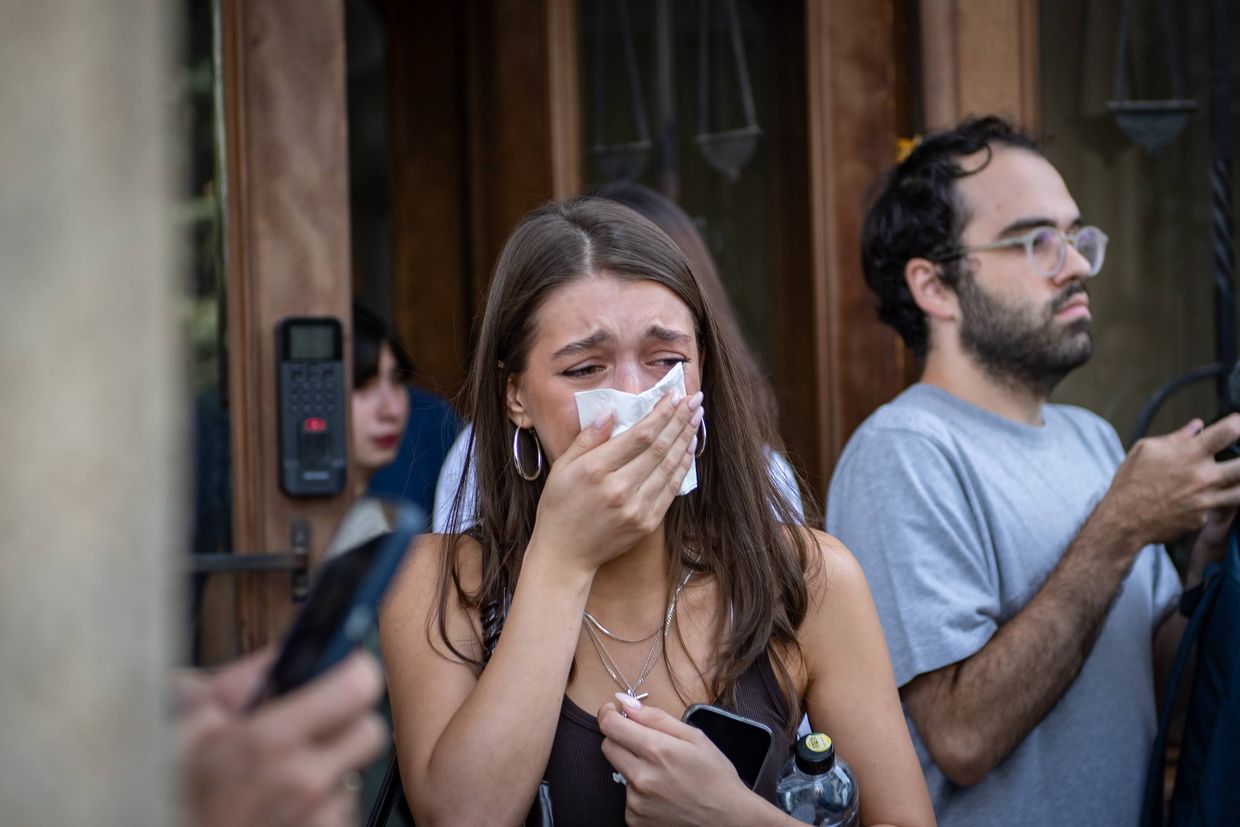
The cases, among dozens of criminal proceedings initiated during the protests, were widely perceived by government critics as fabricated.
Family members of detainees have waged a campaign that included permanent protests demanding their release and the distribution of newspapers across the country publishing letters from the imprisoned protesters.
‘Let the regime fear mothers!’ said Nargiz Davitadze, Tsetskhladze’s mother, after the verdict was announced. She urged the other parents present at the scene not to cry.
‘Strength is in unity; we will be stronger’, she said.
Marizi Kobakhidze, the mother of Goshadze, stated that ‘today is the day of more struggle’.
‘For nine months we have fought, we have struggled, and we have not achieved our goal. Did they get the better of us [today]? We’ll see who prevails [next]. Our children are now freer than these two prosecutors’, she said, referring to the prosecutors involved in the case.
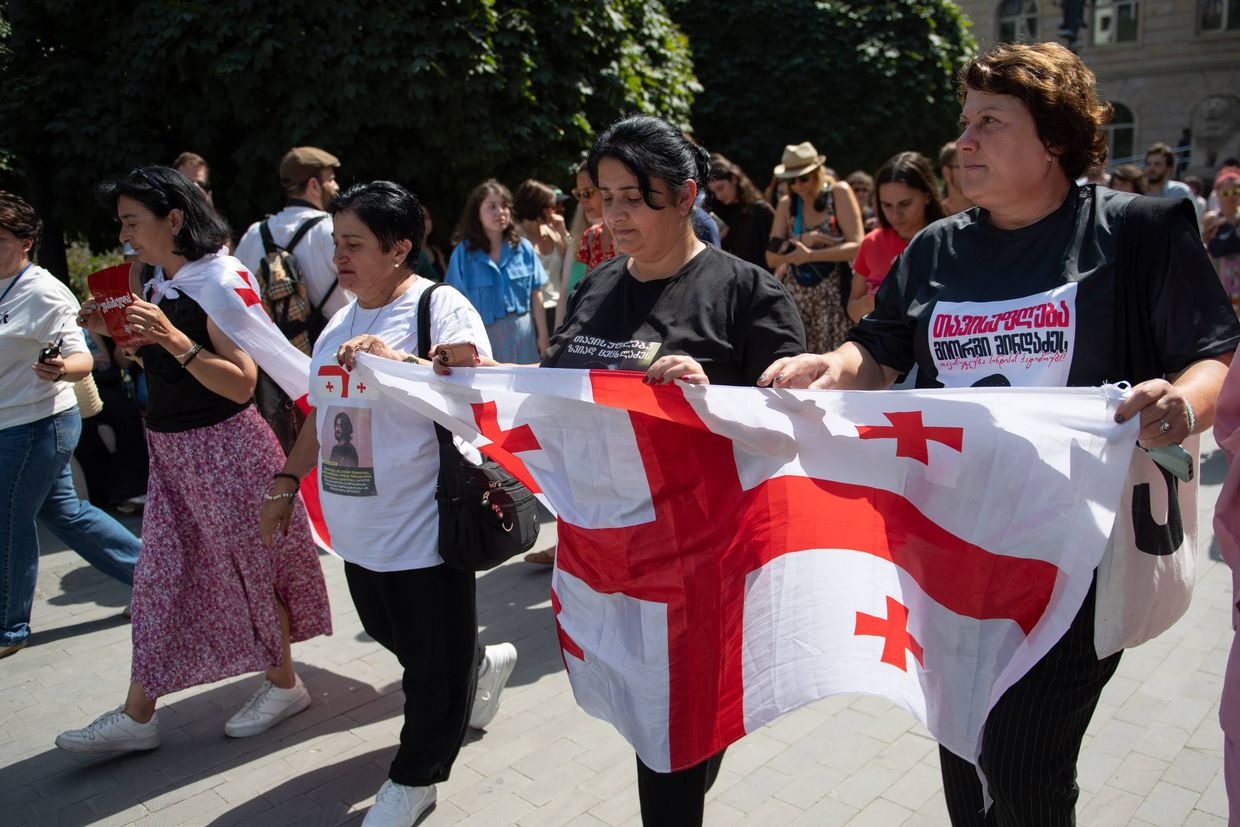
All eight individuals were detained by police during protests that began on 28 November, following the ruling Georgian Dream party’s suspension of Georgia’s EU membership bid. The first phase of demonstrations saw heavy clashes and brutal police violence against protesters and journalists.
Hundreds of people have been detained, with criminal cases launched in over 50 instances. Several protesters have already been convicted and sentenced to years in prison.
Like the other detainees, the eight people sentenced on Tuesday spent the entire pre-verdict time in prison. They were repeatedly kept in pretrial detention by the court.
Accusations of ‘organising violence’
The detention of Kadzelashvili and Kasradze — both members of the opposition Lelo party — was based on an alleged secret recording released by pro-government channels, which claimed to demonstrate that two protesters were discussing violent plans against Georgian Dream representatives and their family members.
RFE/RL quoted Kadzelashvili’s lawyer, Revaz Acharadze, who stated that the location, time, and date of the video were undetermined, and likewise, the questions of what exactly Kadzhelashvili organised and what specific outcome resulted that could be linked to his actions remained unanswered.
Similar questions were raised by Kasradze’s lawyer, Goga Samushia, who emphasised that the prosecution failed to establish which of Kasradze’s actions was linked to which outcome, what exactly his organisation of collective action entailed, what kind of communication he had with other defendants, and who or what was harmed as a result of his actions.
Another individual charged under organising violence, Tsetskhladze, was 19 years old at the time of his detention. Originally from the coastal city of Batumi, he actively participated in anti-government protests in recent years and founded the student organisation Dapioni during this period.
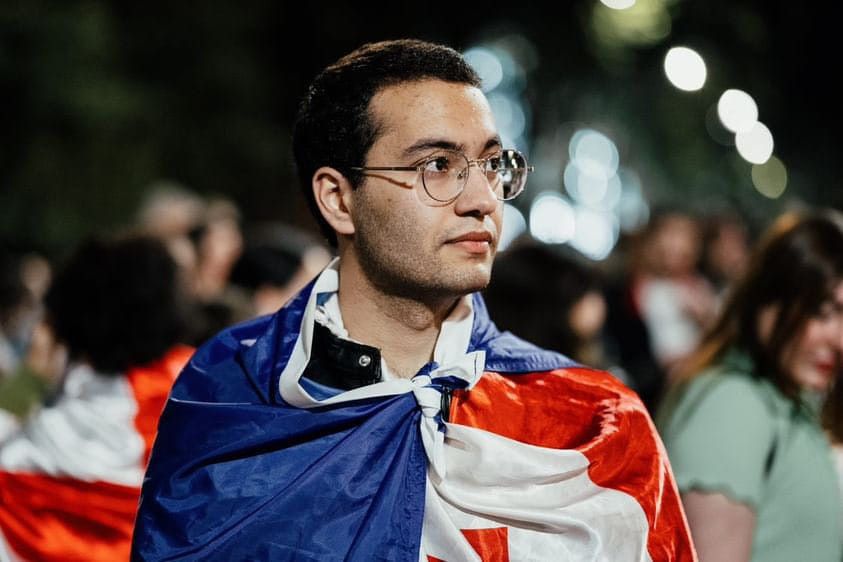
Tsetskhladze’s case included, among other materials, his Facebook live broadcast, which, according to his lawyer Davit Chikaidze, dates back to 30 November. The video is no longer publicly available.
According to RFE/RL, the prosecution claimed the video incited violence, specifying locations, times, targets, encouraging fireworks, and showing how to make shields. Tsetskhladze said he was discussing self-defence against police violence, not attacking them.
In his closing statement, lawyer Davit Chikaidze said the case contained no direct evidence that Tsetskhladze influenced anyone. Since the prosecution’s version of the video was muted due to a technical issue, Chikaidze refused to discuss its details. However, he questioned how Tsetskhladze could organise violence through a video that did not exist on 28 and 29 November, as some demonstrators in the case are accused of violent acts on those dates.
Chikaidze also noted that he was not allowed to be present during the search of Tsetskhladze’s home, where, according to the case files, Molotov cocktails were also seized. According to the lawyer, after the search ended, ‘items of unclear origin’ were found in the house.
The ‘participants’ of violence
The lawyers also raised concerns about insufficient evidence in the cases of the other five defendants, who were accused of participating in the violence allegedly organised by the three.
According to RFE/RL, their cases were largely identical to those of the alleged organisers, differing only in the defendants’ names and the objects reportedly thrown by the protesters. The alleged damage caused by the objects allegedly thrown by the protesters is not visible in videos provided by the prosecution.
Critics have repeatedly pointed out that in almost all of the cases, the prosecution was unable to establish that the defendants — both the alleged organisers and participants — were connected to one another.
‘With one exception (Kasradze–Kadzelashvili), the defendants had not even known, nor had ever communicated with each other’, noted Transparency International (TI) Georgia in its March report.
As the organisation further emphasised, ‘even if they threw any objects […] they did so spontaneously, chaotically, based on the specific situation, and not in a pre-agreed and organised manner’.
Additionally, critics have repeatedly noted that none of the police officers presented as victims in court by the investigation could identify a specific protester who had caused them harm.
Moreover, the lawyers pointed out further circumstances that cast doubt on the cases. For example, in the cases of Miminoshvili and Goshadze, expert analysis determined that the videos submitted by the prosecution had been edited, which was revealed through several independently mismatched images.
Closing statements
Before the verdicts were announced, all defendants exercised their right to a final statement on 27 August, addressing the court, their families, and supporters with emotional speeches.
‘I felt that if I didn’t take to the streets, if I didn’t express my opinion, I might simply become numb to the feeling of shame, and that feeling has always been with me’, Tsetskhladze said.
He emphasised that during clashes between police and protesters, citizens were defending their right to life against police violence.
‘They beat us brutally. They smashed my glasses on my head. They tore my clothes so violently that I had to walk barefoot to the university campus [located near the protest site]’, he recounted.
In Goshadze’s words, he attended the protest to show that ‘a historic enemy [Russia] can never become a friend of my country’.
‘I did not go there with the intention of endangering anyone’s life. It is a mistake to think that having a conscience requires financial support, or that expressing empathy requires someone to organise or instruct you to do so’, he said, as quoted by Publika.
Goshadze also claimed that during the search of his home, the police threatened to plant illegal items on him.
‘Don’t babble too much; you know that I can put whatever I want on the table right in front of you, and you still won’t be able to prove it’s not yours’, he added, quoting one of the arresting police officers.
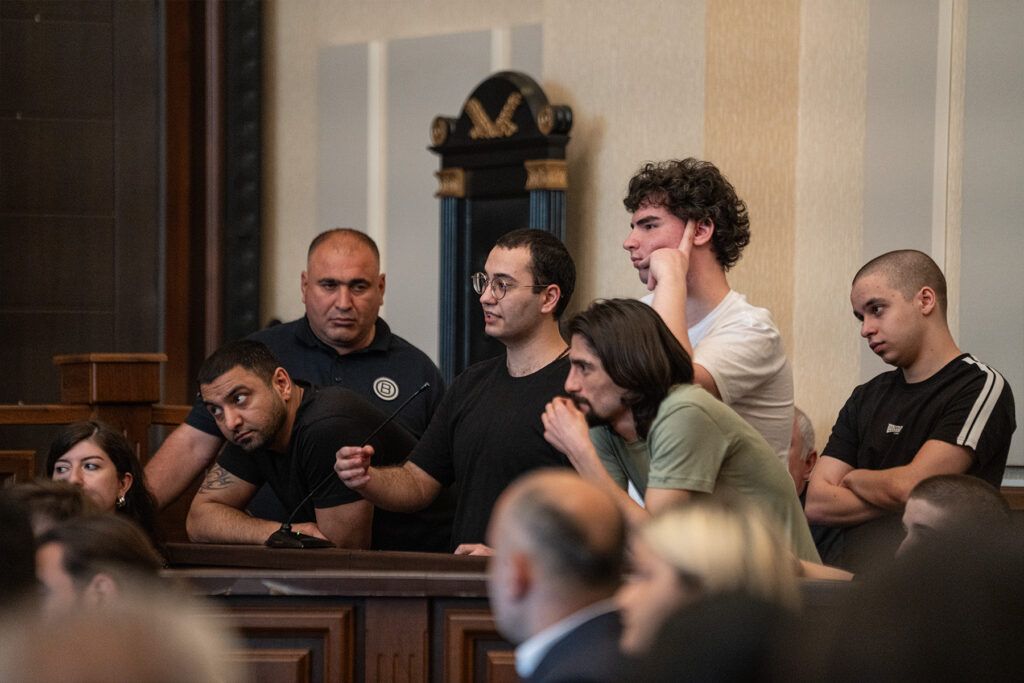
Gorgadze, in turn, thanked those supporting the detained protesters and also responded to the authorities’ and pro-government media’s labeling of the demonstrators as ‘radicals’.
‘I’m not that kind of person — a violent radical, someone who’d kill a person or anything like that. It doesn’t fit my character’, he stated.
Gorgadze added that the time in prison will soon pass, after which ‘we, your children, and my children will live in the kind of country we want it to be — independent and free’.
Kadzhelashvili, who is older than most of the detainees, not only spoke about his own case but also expressed support for the younger protesters.
‘They accuse me of supposedly organising this generation, these great young people — but they have nothing to organise [...] Since the 1990s, we have been oppressed many times, but these young people do not deserve that. They should be enjoying life’, he said.
